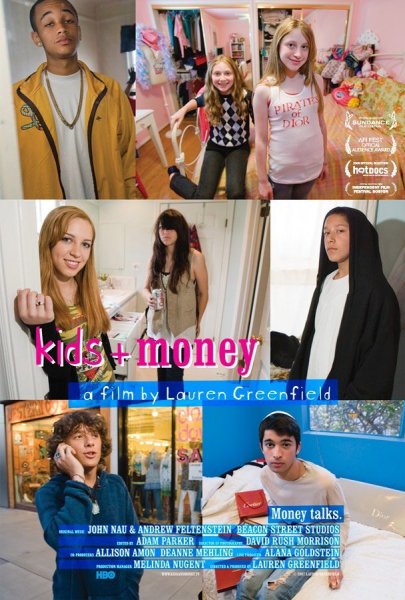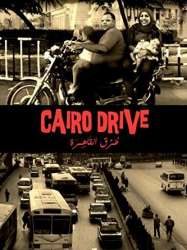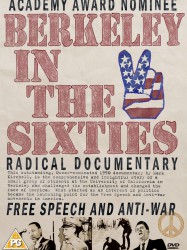Kids + Money est un film américain de genre Documentaire réalisé par Lauren Greenfield
Kids + Money (2008)

Si vous aimez ce film, faites-le savoir !
The 2008 cinéma vérité documentary film, kids + money, was directed by photographer/filmmaker Lauren Greenfield and produced by Evergreen Pictures (founded by Frank Evers (CEO). The 32 minute film includes interviews with Los Angeles teenagers on the subject of money and how it affects their lives. HBO licensed North American broadcast rights to "kids + money", and the film has been distributed to major broadcasters and cable networks internationally. An educational DVD is being distributed by Bullfrog Films.
The characters in the film are: 16-year-old Gabby, for whom shopping is a hobby and fashion a means of self-expression; 17-year-old Sean Michael, from a middle-class family who has to work to support his shopping habits; 17-year-old Emmanuel, who discusses his relationship to money and how he fits in at his school, Harvard-Westlake; Matthew, a child actor; and 17-year-old Zoie, who lives with her parents in a small one-bedroom apartment.
"kids + money", was selected as one of the top five nonfiction shorts in the world by Cinema Eye Honors 2009. The short also won the Audience Award for Best Short Film at the AFI Film Festival 2007, the Michael Moore Award for Best Documentary Film at the 2008 Ann Arbor Film Festival, the Gold Plaque, Documentary:Social/Political from The Hugo Television Awards 2008, and Best Documentary Short at Kids First Film Festival 2008. "kids + money" was also selected into the Official Shorts Program at the Sundance Film Festival (January 2008).
Commentaires
Postez un commentaire :
Suggestions de films similaires à Kids + Money
Il y a 1 films avec le même réalisateur, 8954 ayant les mêmes genres cinématographiques, 10101 films qui ont les mêmes thèmes (dont 0 films qui ont les mêmes 4 thèmes que Kids + Money), pour avoir au final 70 suggestions de films similaires.Si vous avez aimé Kids + Money, vous aimerez sûrement les films similaires suivants :

The Queen of Versailles (2012)
, 1h40Réalisé par Lauren Greenfield
Origine Etats-Unis
Genres Documentaire
Thèmes Documentaire sur la politique, Politique
Note70%





Le film dépeint la vie de Jackie et David Siegel, propriétaire des Westgate Resorts , et de leur famille, alors qu'ils construisent la plus grande et plus onéreuse maison des États-Unis, appelée « Versailles », et les effets de la crise qu'ils traversent alors que l'économie américaine décline.

Cairo Drive (2013)
, 1h19Genres Documentaire
Thèmes Transport, Documentaire historique, Documentaire sur la politique, Documentaire sur les technologies, Documentaire sur les villes, Politique
Note74%





The film begins in 2009 and opens with aerial shots of Cairo's geometrical gridlock, while Handel's Water Music plays seamlessly in the background. The serenity is quickly broken, however, by a series of ground-level shots of bumper to bumper traffic, shouting taxi drivers, and an endless symphony of car horns. Amidst this mélange of 14 million vehicles, it appears that not even the traffic police understand how it all works. Yet through a series of comical behind the wheel interviews, it becomes clear that the array of sounds and gestures represents an ongoing dialogue between the city's 20 million residents. However, the film also touches upon the city's darker side. Corruption is rampant and despite residents' crafty work-arounds, the situation is without question out of control and getting worse. One resident describes crossing Cario's streets, many of which have eight or more "lanes", as a giant game of Frogger. A more poignant moment comes when a long-time American resident of Cairo recounts how his daughter, 18, was struck and killed by a bus.

Prisoners of a White God (2007)
, 51minutesGenres Documentaire
Thèmes Le thème de l'éducation, L'enfance, Esclavagisme, Religion, Sexualité, Erotique, Prostitution, Documentaire sur le droit, Documentaire sur une personnalité, Documentaire sur la politique, Documentaire sur la prostitution, Documentaire sur la religion, Documentaire sur la maltraitance des enfants, Politique, Maltraitance des enfants

Native New Yorker (2005)
, 13minutesOrigine Etats-Unis
Genres Documentaire
Thèmes Les attentats du 11 septembre 2001, L'environnement, Religion, Le terrorisme, Transport, Aviation, Documentaire sur le droit, Documentaire sur la guerre, Documentaire historique, Documentaire sur la politique, Documentaire sur la religion, Documentaire sur les technologies, Documentaire sur le terrorisme, Documentaire sur les villes, Politique, Religion musulmane, Film catastrophe, Film de catastrophe aérienne, Détournement d'avion
Note80%






Unfair Dealing (2008)
Origine Canada
Genres Documentaire
Thèmes Le terrorisme, Documentaire sur le droit, Documentaire sur la guerre, Documentaire historique, Documentaire sur la politique, Documentaire sur le terrorisme, Documentaire sur les villes, Politique

Children of the Secret State (2001)
Origine Royaume-uni
Genres Documentaire
Thèmes L'enfance, Documentaire sur une personnalité, Documentaire sur la politique, Politique
Note74%






Berkeley in the Sixties (1990)
, 1h58Origine Etats-Unis
Genres Documentaire
Thèmes Documentaire historique, Documentaire sur la politique, Documentaire sur les villes, Politique
Note73%






Confrontation at Concordia (2003)
Origine Canada
Genres Documentaire
Thèmes Afrique post-coloniale, Religion, Documentaire sur le droit, Documentaire sur la guerre, Documentaire historique, Documentaire sur une personnalité, Documentaire sur la politique, Documentaire sur la religion, Documentaire sur les villes, Politique, Religion juive
The documentary opens with scenes of the violence at the event, depicting fighting between protesters and Jewish students attempting to enter the venue. This is followed by an interview with student Samir Elitrosh, a leader of the Solidarity for Palestinian Human Rights and the leader of anti-Israel violence who was later suspended. It also features interviews with Concordia's Hillel president Yoni Petel and Concordia rector Frederick Lowy, and concludes with a discussion of what it sees as the growing trend of anti-Israel activities on North American campuses.

Origine Etats-Unis
Genres Documentaire, Policier
Thèmes Documentaire historique, Documentaire sur la politique, Documentaire sur les villes, Politique
Note62%





99 cinéastes américains analysent le mouvement "Occupy Wall Street" contre le capitalisme financier : participants, soutiens, opposants sont interrogés sur sa genèse.

The Harvest (La Cosecha) (2011)
, 1h20Origine Etats-Unis
Genres Documentaire
Thèmes L'enfance, L'environnement, Le monde du travail, Documentaire sur le monde des affaires, Documentaire sur le droit, Documentaire sur l'environnement, Documentaire sur une personnalité, Documentaire sur la politique, Documentaire sur la maltraitance des enfants, Politique, Maltraitance des enfants
Note69%





 Connexion
Connexion